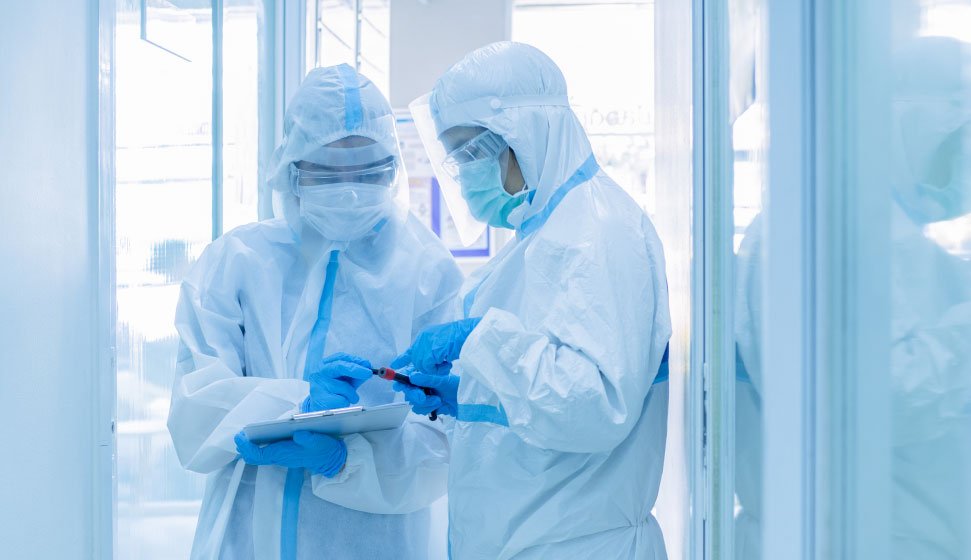- ejazkhadija2004@gmail.com
- August 29, 2023
- Biocompatability
- 0 Comments
When it comes to medical devices, safety is the top priority. One of the biggest questions that needs to be answered before a device is approved and used on patients is:
“Will this device be safe inside or against the human body?”
That’s exactly what biocompatibility testing helps to determine.
In this blog, we’ll explain what biocompatibility means, why it’s important, what types of tests are performed, and how labs like Test Cert help ensure that medical devices are safe for human use.

What is Biocompatibility?
Biocompatibility simply means “compatible with life.”
In the medical device world, it refers to how well a material or device interacts with the human body without causing harmful effects such as:
- Toxic reactions
- Inflammation
- Allergies
- Cancer
- Genetic damage
When a medical device (or any part of it) touches the body — either on the skin, inside the body, or in contact with fluids like blood — it must not cause harm. This applies to devices like:
- Surgical instruments
- Catheters
- Implants (like pacemakers or orthopedic screws)
- Bandages and wound dressings
- Dental tools
That’s why biocompatibility testing is required before these products are allowed in hospitals or clinics.
Why Does Biocompatibility Testing Matter?
1. Patient Safety Comes First
Patients may already be vulnerable due to illness or surgery. A device that reacts badly with the body can make things worse, causing infections, allergic responses, or even long-term damage.
2. Regulatory Approval
Authorities like the FDA (U.S.), EMA (Europe), and DRAP (Pakistan) require proof that a device is biocompatible. You can’t register or sell a device without proper testing.
3. Product Reliability and Trust
Biocompatibility testing helps build trust with hospitals, doctors, and end-users by ensuring that the product will not cause unexpected side effects.
What Types of Biocompatibility Tests Are Performed?
Biocompatibility testing involves a series of laboratory tests performed under ISO 10993, the international standard for biological evaluation of medical devices.
The exact tests depend on:
- Where the device contacts the body (skin, blood, tissue, etc.)
- How long the contact lasts (minutes, hours, or years)
- The type of material used
Here are some of the most common biocompatibility tests:
1. Cytotoxicity Test
Checks if the material kills or damages living cells. It’s a basic screening test for toxicity.
2. Sensitization Test (Allergy Test)
Evaluates whether the material could cause allergic reactions after repeated contact.
3. Irritation Test
Tests if the material causes redness, swelling, or other irritation when applied to skin, eyes, or mucous membranes.
4. Systemic Toxicity Test
Looks at whether harmful chemicals from the device could enter the bloodstream and affect internal organs.
5. Genotoxicity Test
Assesses whether the material can damage DNA or lead to genetic mutations — which could cause cancer or birth defects.
6. Implantation Test
Used for devices that are implanted into the body. The material is implanted in animals to study how surrounding tissues react over time.
7. Hemocompatibility Test
For devices that come in contact with blood (e.g., catheters), this test checks for blood clotting, hemolysis (destruction of red blood cells), or immune response.
How is Biocompatibility Testing Done?
At Test Cert, the process generally includes:
Material Review
We examine the materials used in the device. If the materials are already proven to be safe and unchanged, testing might be reduced.Risk Assessment
We help manufacturers evaluate the device’s intended use, contact type, and duration to decide which tests are necessary.Laboratory Testing
We perform biological tests in a certified lab under strict conditions, often using animal models or cell cultures.Reporting and Documentation
We prepare detailed test reports that manufacturers can submit to regulatory bodies as proof of compliance.
When is Biocompatibility Testing Needed?
You should consider testing if:
- You’re introducing a new product or material
- The device has direct or indirect contact with the human body
- The product will be submitted for FDA, CE, or DRAP approval
- You’ve changed materials or manufacturing processes in an existing product
How Test Cert Can Help
At Test Cert, we understand the importance of biocompatibility testing in medical device safety and registration. Our lab offers:
- ISO 10993-compliant testing
- Expert support in test planning and risk assessment
- Fast turnaround times
- Complete documentation for local and international regulators
We work closely with manufacturers to ensure their devices are safe, compliant, and ready for the market.
Dedicated Professionals & Doctors Recommend Us
Dedicated professionals committed to providing you with accurate and reliable diagnostic services. Get patholab services today from the best lab experts & make a visit to our laboratory.
Final Thoughts
Biocompatibility testing may not be visible to end users, but it plays a life-saving role in the development of safe medical devices. It ensures that what goes in or on the body does not cause harm — and helps companies meet global standards.
If you are developing a medical device, don’t take risks with safety. Get your product tested by a trusted lab like Test Cert and ensure peace of mind — for you, regulators, and most importantly, your patients.

